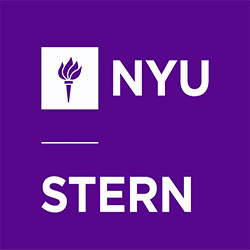 Zoish Pithawala is a current Tech MBA student, specializing in Tech Product Management. Prior to Stern, Zoish worked as a Solutions Architect focused on startups interested in using cloud technologies. Post-MBA, she plans to move into a technical product management role specifically focused on data analytics.
Zoish Pithawala is a current Tech MBA student, specializing in Tech Product Management. Prior to Stern, Zoish worked as a Solutions Architect focused on startups interested in using cloud technologies. Post-MBA, she plans to move into a technical product management role specifically focused on data analytics.
When you say MBA, most people typically think of a traditional two year program, however there is a rising popularity in more specialized, accelerated programs like the Tech MBA. There is no one-size-fits-all approach to what program makes more sense for you, but there are some key differences to keep in mind as you evaluate these options.
Curriculum
NYU Stern’s Andre Koo Tech MBA program is a one year (May – May), 52 credit program. The Two Year Full-time MBA program runs over the span of two years (September – May) and students earn 60 credits to graduate. Both programs have the same selection of courses for electives, but with the Two Year MBA, you have the opportunity to take more elective classes and experiential courses since you have more credits to earn and more time. The core curriculum in the Tech MBA includes classes like Foundations of Networks and Mobile Systems and DevOps and Software Engineering, which are not typically offered in the Full Time MBA program. Both programs give students the opportunity to select up to 3 specializations from a list of over 25 options. The Tech MBA curriculum is catered towards specializations like Entrepreneurship and Innovation or Technical Product Management, however students can specialize in any of the available options.
For me personally, I felt like the curriculum in the Tech MBA fit my needs perfectly. There’s a great balance between the technical classes with the business core classes to give a good overview of everything. There are also more than enough elective credits where I felt like I could branch out and try electives that were really interesting to me. Some of the classes I found to be really interesting as part of the curriculum were Leadership, Tech Solutions, and Tech Product Management.
Class Profile
NYU Stern has a diverse student population throughout all their programs, but there are some differences in the class profile between the Tech MBA and Two Year MBA. The biggest difference is the size of the class. The Tech MBA has a smaller cohort of around 50 students, whereas the Two Year Full-time MBA has a class size of around 330 students. Amongst these students, the Tech MBA tends to have a higher average for years of work experience, with a majority of students coming from a STEM background. In contrast, the majority of students in the Two Year MBA have a background in business and prior work experience in various industries.
I love having a smaller cohort because it gives me the opportunity to really connect with everyone in the program and get to know each other really well. I find it’s also really valuable to have classmates with similar interests and backgrounds so we can work on projects together and discuss recruiting strategies for similar roles.
Internships
The Two Year MBA gives students the opportunity for a summer internship in between their first and second year. This can be very beneficial for students pivoting to a new industry or students looking to gain work experience. Many prospective students choose to do an MBA program to gain new skills, and summer internships provide them with the opportunity to apply what they have learned. For most students, a full-time job offer is the ultimate goal of the MBA program and a good summer internship can often lead to a return offer with the company. Since the Tech MBA is an accelerated program, there is no time for a summer internship, but the valuable experiential course offerings throughout the year can help students build work experience through company project partnerships.
Personally, I enjoyed the Tech Solutions experiential course that is part of the Tech MBA curriculum. This gave me an opportunity to work with a large tech company on a semester-long project. This project helped me develop skills that would be incredibly useful for my future career and acted as an internship for my resume.
Return on Investment
MBA programs can be quite expensive, so everyone wants to maximize their investment. When looking at the numbers, the Tech MBA program has a lower cost of tuition compared to the Two Year MBA . Another large part of the equation is the amount of time you spend in the MBA program in lieu of working and earning a salary. While you will have a summer internship to make up some of the cost, you will be out of the workforce for two years with the Two Year MBA, whereas you are only out of the workforce for one year with the Tech MBA.
With the tech industry changing so rapidly, it was really important to me to only be out of the workforce for one year. I wanted to be able to jump back into the workforce without feeling like I missed out. This way I would be getting the value of an MBA program without having to pause my career for too long.
There are a variety of different factors that play into the decision to apply to a specific MBA program and, for me, these were some of the most important factors when deciding on the Tech MBA. The ROI of a one year accelerated program aligned perfectly with my career goals and I valued having a smaller cohort with a background that aligned with the Tech industry. In the end, both the Tech MBA and the Two Year MBA are amazing programs, so it really comes down to what makes the most sense for you!


















